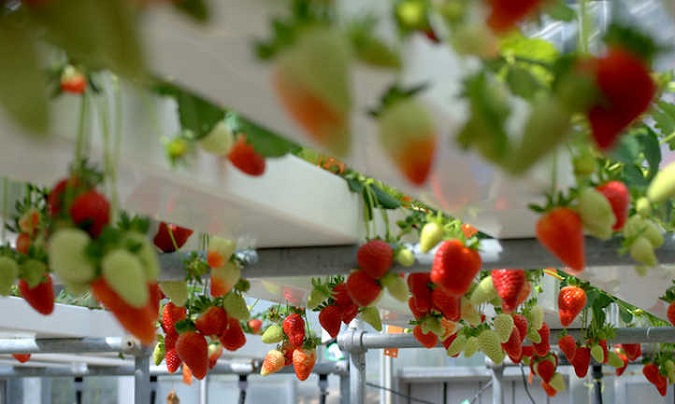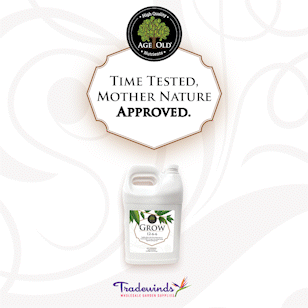As is true with any other form of gardening, choosing the right plants is an essential part of hydroponics. Choosing plants that are suitable for soil free gardening will help the garden thrive. Choosing the wrong plants can leave you frustrated with the entire hydroponic approach to growing plants.

One of the great things about hydroponic gardening is that gardeners can take several different approaches to the subject. There are several different types of hydroponic gardening, each with its own set of suitable and unsuitable plants. This article explains the 7 most common types of hydroponic systems. In this article we will look at some forms of hydroponic gardening and provide a list of suitable plants for each one. It will also look at which plants are best suited for specific grow mediums.
Nutrient Film Technique (NFT) Gardening
In the nutrient film technique form of gardening there is a constant flow of nutrients through a series of pipes. The roots of the plants simply dangle in this constantly flowing water, with the tops of the plants supported from above using either a platform or some type of trellis.
Some of the plants best suited to the NFT form of hydroponic gardening include:
- Cucumbers
- Lettuce
- Tomatoes
- Broccoli
- Cabbage
- Cauliflower
- Eggplant
- Spinach
- Beans
- Strawberries
Examples of unsuitable NFT plants include roses, bulbs, and most indoor plants.
Gravel Bed Gardening
In the gravel bed hydroponic garden there is a boxed structure or raised bed filled with stone or coarse sand. Nutrient solutions can be applied in several ways, including drip irrigation and flooding the gravel bed with water and reusing the excess.
Suitable plants for a gravel bed system include:
- Lettuce
- Garlic
- Leeks
- Onions
- Melons
- Brussels Sprouts
- Peas
- Tomatoes
- Radishes
- Pineapples
- Potatoes
The gravel bed system is also well suited for growing cuttings, and for propagating flowers like carnations and chrysanthemums. Root vegetables like carrots typically will not do as well in a gravel bed system.
Capillary Fed Systems
With a capillary feed setup, the water and nutrients are drawn from an outer well using a capillary system. The outer well is topped up as required, giving the plants a steady supply of water and nutrients. This type of system can be as simple as a terracotta pot that has been filled with gravel and placed in a bucket of nutrient solution. Unlike many other hydroponic systems, the capillary fed arrangement is quite well suited for many indoor houseplants.
Some of the most suitable plants for this type of arrangement include:
- Dieffenbachia
- Ficus
- Dracaena
- Palms
- African violets
- Palms
Rockwool
Rockwool is a popular medium for hydroponic gardening, and this lightweight material is suitable for many different plant species. Rockwool can hold a large quantity of nutrients, making it a perfect choice for hydroponic gardening. Nutrients can be supplied using drip irrigation, and it is almost impossible to over water this type of system.
Some plants that would be suitable for growing in rockwool include:
- Lettuce
- Onion
- Melons
- Cucumbers
- Zucchini
- Pumpkin
- Strawberries
- Tomatoes
Root plants are not suitable for rockwool growth and should be avoided.
Perlite
Perlite is widely available in garden centers, and perlite kits are easily available to hydroponic gardeners. Gardeners using this system can simply wet the perlite with the nutrients and then plant their favorite crops directly into the media. The nutrient can be applied either manually or using a drip irrigation system.
Some suitable plants for perlite gardening include:
- Cucumbers
- Artichokes
- Leeks
- Tomatoes
- Lettuce
As with most hydroponic gardening, root plants are not suitable for this type of system.
While nothing can guarantee success in the world of gardening, choosing the right plants can be more than half the battle in the world of hydroponics. Determining which type of hydroponic system best suits your needs and choosing the plant species most suitable for that system, can enhance your chances for success and the enjoyment of your garden.
Pavel Sluka has been growing hydroponically for over 20 years.
Related Articles & Free Email Newsletter Sign Up
Getting to Know 5 Common Hydroponics Growing Media
How to Grow Great Hydroponic Peppers
The Importance of Plant Roots in a Hydroponic System




Comment here